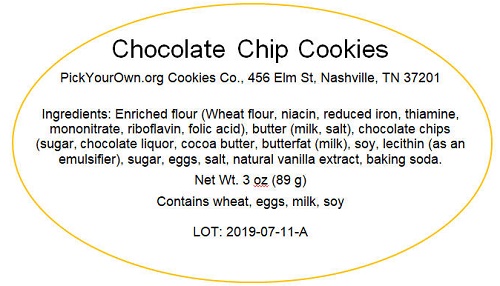Tennessee Cottage Food Law 2018

Sauces and dressings.
Tennessee cottage food law 2018. A domestic kitchen is much more difficult to setup requiring training permits plans and a home inspection. Why the cottage food law is a game changer for talented home cooks. Tennessee cottage food law. Tennessee has updated their laws to exempt basic home based food processors from a license and kitchen inspection.
The cottage food law does not provide the manufacturer with liability protection so anyone who is injured by consuming the product can still sue the person who made the cottage food item. By elina shatkin in food on september 20 2018 11 39 am. The recently passed law alters tenn. However they still allow home based food businesses under the domestic kitchen law which allows indirect sales to restaurants and retail stores.
Typically the department of health or the department of agriculture approves and oversees cottage food businesses. To ensure compliance with the tennessee food safety act every food service establishment is inspected between one and four times per year depending on various factors such as the complexity of the food operation and level of active managerial control over foodborne illness risk factors to ensure compliance with the tennessee food safety act. Unlike cottage food programs food freedom laws let residents sell almost any homemade food including canned pickled and refrigerated goods aside from those that contain meat without any cap on sales or any licensing permitting or inspection requirements. 8 2012 in somerville massachusetts.
Nothing in the law prevents farmers markets cities or counties from having more restrictive cottage food regulations. What are the changes to the domestic kitchen regulations. Only foods considered non potentially hazardous can be made in home kitchens. Pickled fruits and vegetables spices teas dried produce nuts seeds honey jams jellies preserves fruit butter flour and baked goods candies fruit empanadas and tortillas and other potentially nonhazardous foods.
Potentially hazardous food products that cannot be made in a home kitchen include. Fresh eggs less than 250 dozen per month. Any food that must be refrigerated. Which foods are subject to the tennessee cottage food law.
Pickled vegetables and eggs. Products that contain meat or poultry. Tennessee domestic kitchen cottage food law. Although a license or inspection from the ag department is no longer required producers can only sell in person at certain venues.
Non potentially hazardous foods do not support the growth of harmful bacteria and the processing steps do not require stringent controls to assure a safe product. Most states now have these cottage food laws now that don t require a licensed kitchen.















































